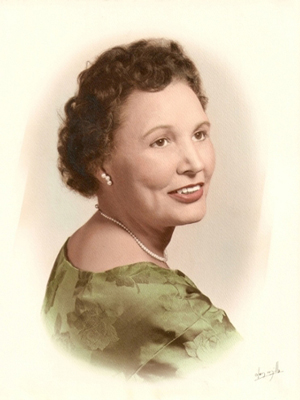
Mary G. Ross
In Loving Memory (1908-2008)
For Mary G. Ross, it was rocket science. Born in the Ozarks in 1908, she was the great-great-granddaughter of the renowned Chief John Ross of the Cherokee nation. She originally attended Northeastern State Teachers College and taught science and math in Oklahoma. She later attended University of Northern Colorado where she took every astronomy class available and earned a master's degree.
In 1942, Mary G. Ross became the first female Native American engineer. She worked for Lockheed Corporation and was one of 40 engineers working in the top-secret Lockheed Skunk Works. In this group, Ross was the only female and only Native American. This group later became Lockheed Missiles & Space Co. − a major consultant to NASA. The Lockheed Skunks Works was working on: "preliminary design concepts for interplanetary space travel, manned and unmanned earth-orbiting flights, the earliest studies of orbiting satellites for both defense and civilian purposes." Ross also co-authored the NASA Planetary Flight Handbook Vol. III, which is about space travel from Mars to Venus.
Ross worked on various projects including researching and evaluating ballistic missiles along with other defense systems, submarine-launched vehicles, satellite orbits (which played a major role in the Apollo moon program), and engineering systems for manned space flight like on the Polaris reentry vehicle.
In the 1950s, Ross became a member of the Society of Women Engineers (SWE) and supported the American Indians in Science and Engineering Society (AISES) and recruited young women and Native Americans into engineering careers. In 2004, she attended the opening ceremony of the National Museum of the American Indian in Washington, D.C., Ross stated, "The museum will tell the true story of the Indian − not just the story of the past, but the ongoing story."

